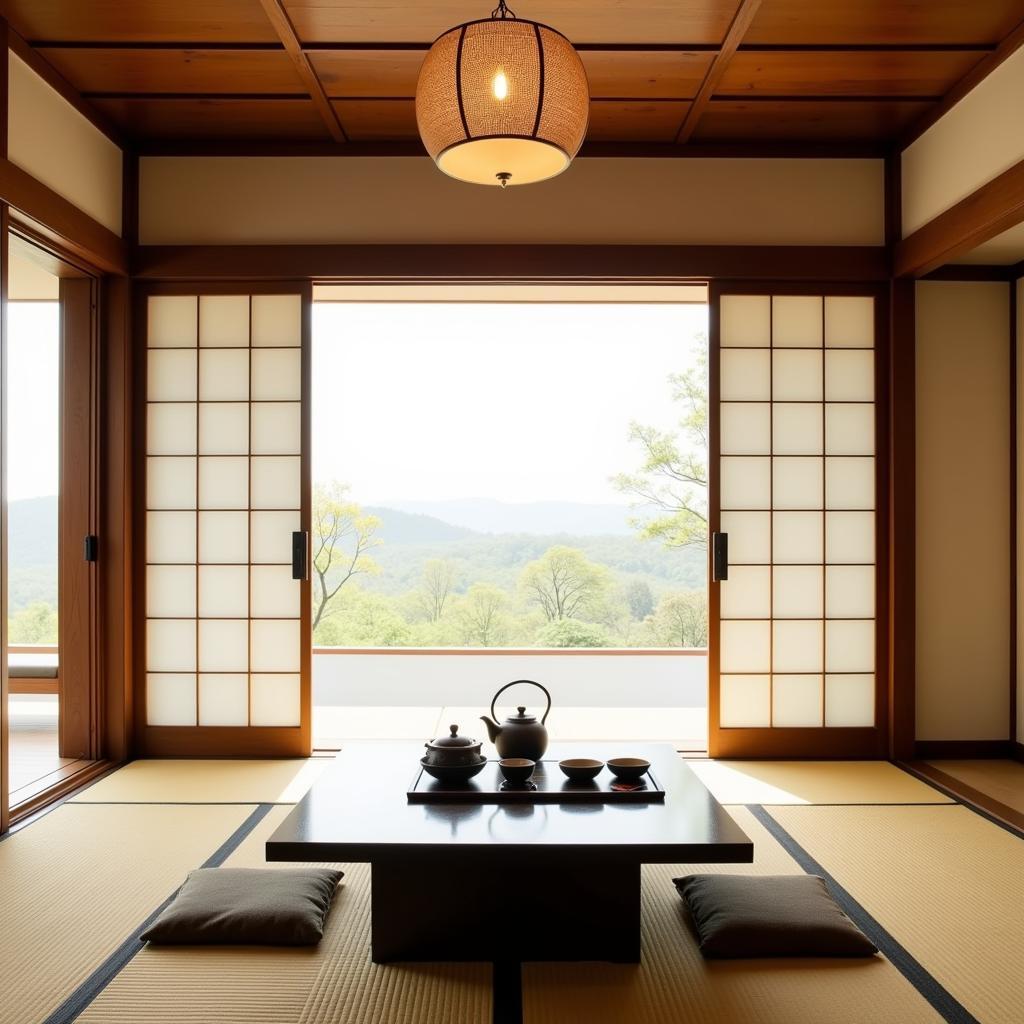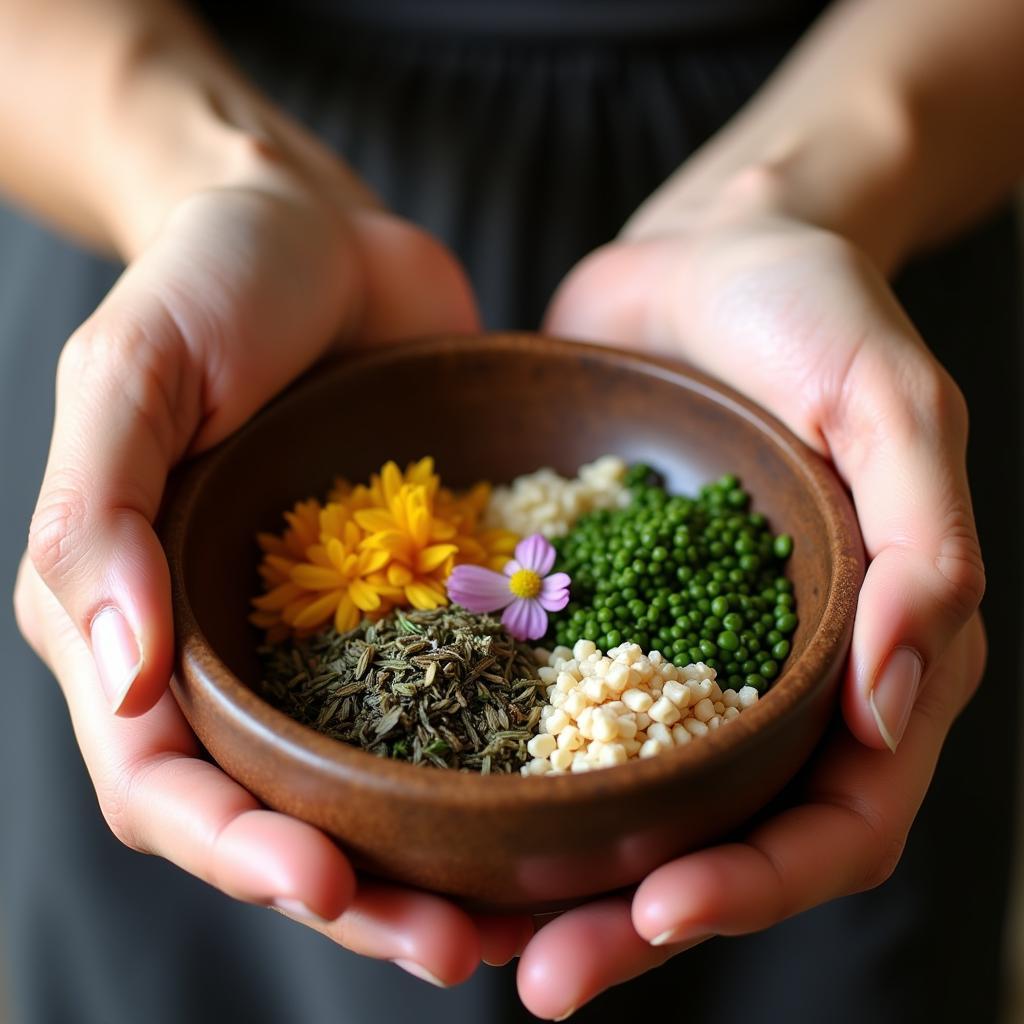The world of Japanese Spa Names is a fascinating blend of tradition, tranquility, and the promise of rejuvenation. Whether you’re looking for the perfect name for your own spa or simply curious about the cultural significance behind these evocative titles, understanding their meaning can deepen your appreciation for the Japanese spa experience.
Decoding the Language of Relaxation: Understanding Japanese Spa Names
Japanese spa names often incorporate elements of nature, philosophy, and cultural values. Commonly used kanji characters evoke images of water, flowers, mountains, and sky, reflecting the deep connection between Japanese culture and the natural world. This connection is integral to the spa experience, emphasizing harmony and balance. For instance, the name “Yu no Hana” (湯の花) translates to “flower of hot water,” suggesting the delicate beauty and healing properties of the onsen experience. Similarly, names incorporating “sawa” (沢), meaning “swamp” or “marsh,” often refer to natural hot springs nestled in serene landscapes, like those found at Nara Spa.
Nature’s Embrace: Common Themes in Japanese Spa Names
Many Japanese spa names emphasize the restorative power of nature. Words like “yama” (山) for mountain, “mizu” (水) for water, and “ki” (木) for tree are frequently used, creating a sense of peace and connection to the natural world. These names not only evoke specific imagery but also hint at the spa’s focus, whether it’s a mountain retreat offering breathtaking views or a hot spring resort nestled amidst lush forests. Asia Spa Rum is a perfect example of a spa that encapsulates this natural connection. They offer a unique blend of Eastern and Caribbean influences, creating a truly relaxing and rejuvenating experience.
Beyond the Surface: The Cultural Significance of Japanese Spa Names
Japanese spa names are more than just aesthetically pleasing; they carry deep cultural significance. They often reflect traditional values like simplicity, purity, and harmony. For example, names incorporating “zen” (禅) allude to the practice of meditation and mindfulness, highlighting the spa’s focus on inner peace and well-being. These names create an expectation of a tranquil and meditative experience, allowing guests to escape the stresses of daily life and reconnect with themselves.
Choosing the Right Name: Considerations for Your Own Japanese Spa
If you’re considering opening a spa and are inspired by Japanese aesthetics, choosing the right name is crucial. It should be evocative, memorable, and reflective of the experience you offer. Think about the specific services you provide, the ambiance you want to create, and the target audience you’re trying to attract. A well-chosen name can be a powerful marketing tool, attracting clients who resonate with your spa’s philosophy and offerings.
 Minimalist Design in a Japanese Spa Interior
Minimalist Design in a Japanese Spa Interior
Consider the success of the Silverland Sakyo Hotel & Spa, known for its blend of traditional Japanese design and modern amenities. Their name itself suggests a luxurious and refined experience. Similarly, a simple yet elegant name like Spa Title can convey a sense of sophistication and exclusivity.
From Ancient Traditions to Modern Practices
Japanese spa culture has a rich history, evolving from ancient onsen practices to the diverse range of spa experiences available today. Modern Japanese spas often incorporate traditional elements like onsen (hot springs), rotenburo (outdoor baths), and treatments using natural ingredients. However, they also offer contemporary therapies and amenities, catering to a wider range of preferences. This blend of tradition and innovation makes Japanese spas a unique and appealing destination for those seeking relaxation and rejuvenation.  Natural Ingredients Used in Japanese Spa Treatments Even hair care products like L’Oreal Xtenso Spa Cream draw inspiration from these natural traditions, incorporating ingredients known for their nourishing and revitalizing properties.
Natural Ingredients Used in Japanese Spa Treatments Even hair care products like L’Oreal Xtenso Spa Cream draw inspiration from these natural traditions, incorporating ingredients known for their nourishing and revitalizing properties.
Conclusion: Finding Your Oasis in Japanese Spa Names
Japanese spa names offer a glimpse into a world of tranquility, tradition, and the art of self-care. Whether you’re planning a spa getaway or simply intrigued by the language of relaxation, understanding the meaning and cultural significance behind these names can enrich your appreciation for the Japanese spa experience. By choosing a name that reflects your spa’s unique offerings, you can create a powerful brand identity and attract clients seeking a truly transformative experience.
FAQ
- What are some common themes in Japanese spa names?
- How do I choose a good Japanese spa name for my business?
- What is the significance of using natural elements in Japanese spa names?
- How can I learn more about Japanese spa culture?
- What are some traditional Japanese spa treatments?
Need support? Contact us at Phone Number: 0373298888, Email: [email protected] or visit us at 86 Cau Giay, Hanoi. We have a 24/7 customer service team.